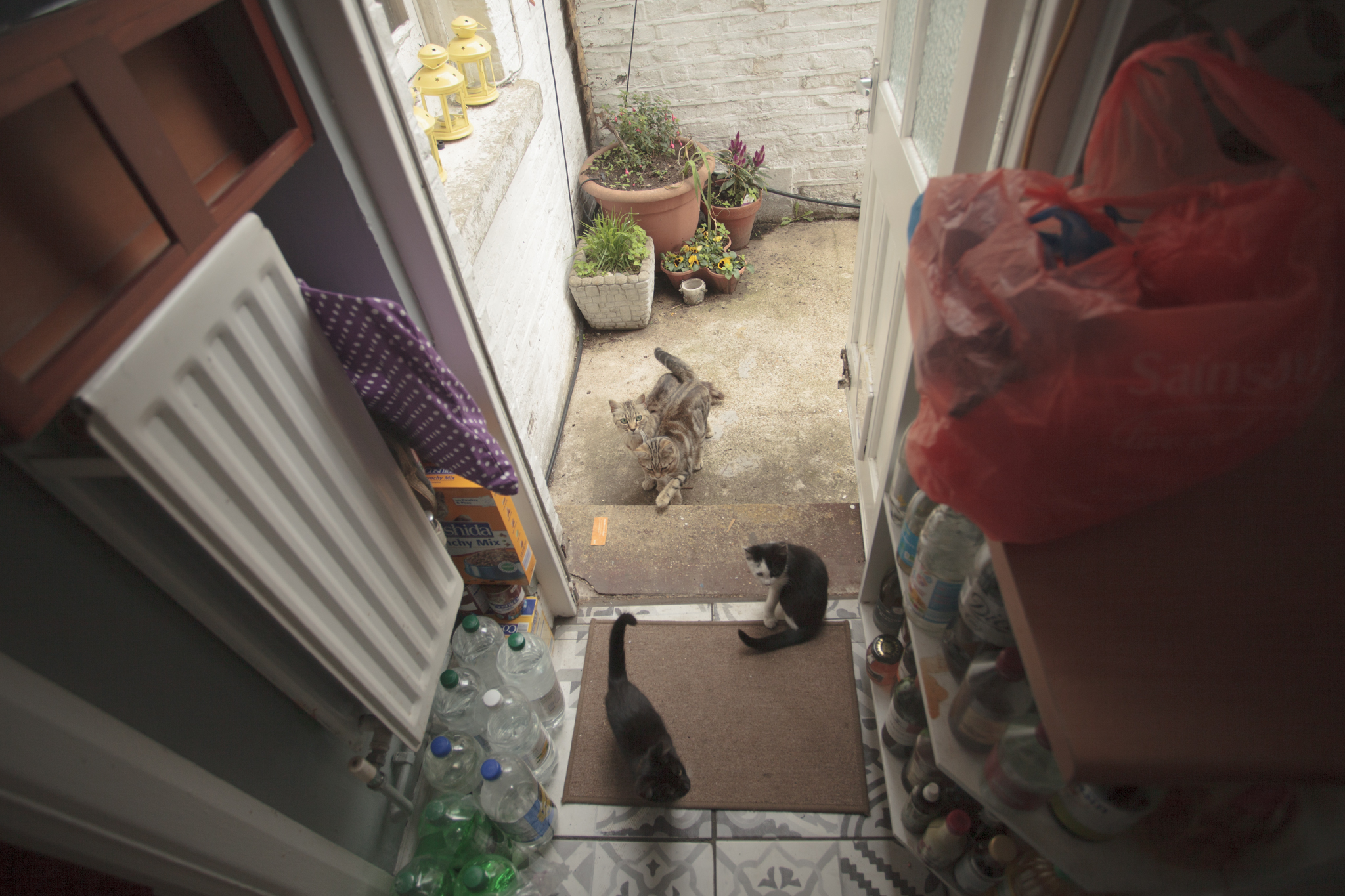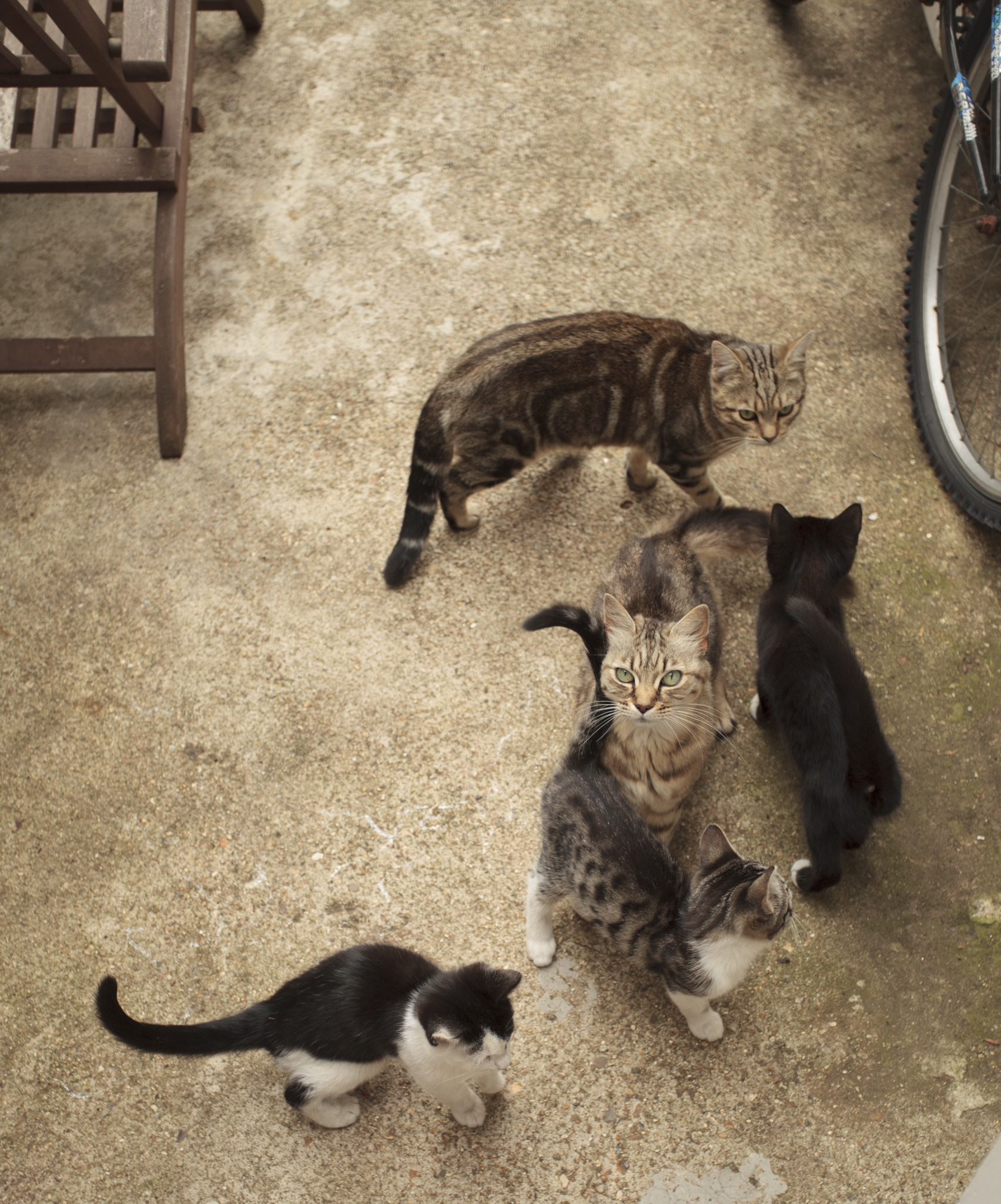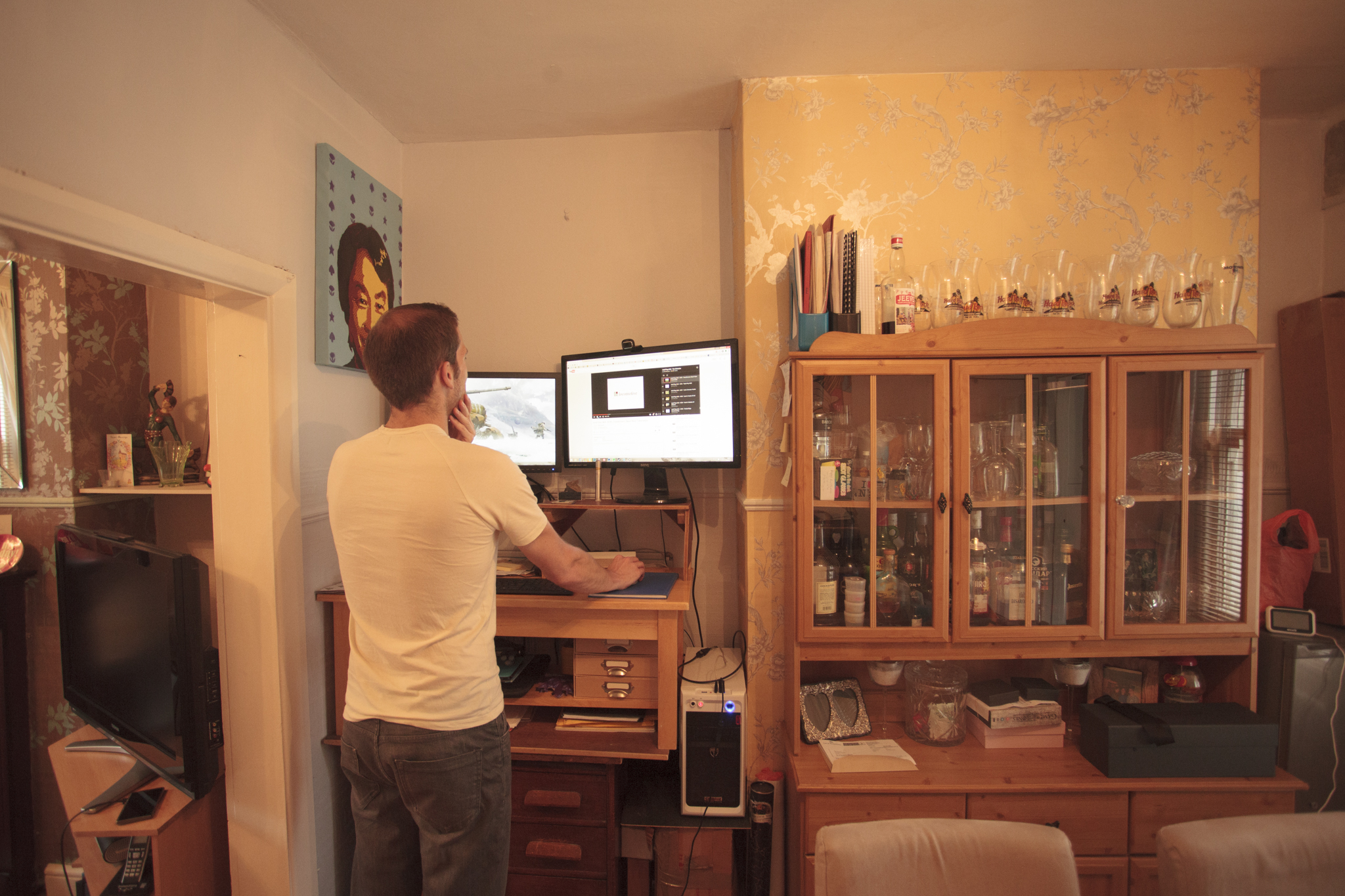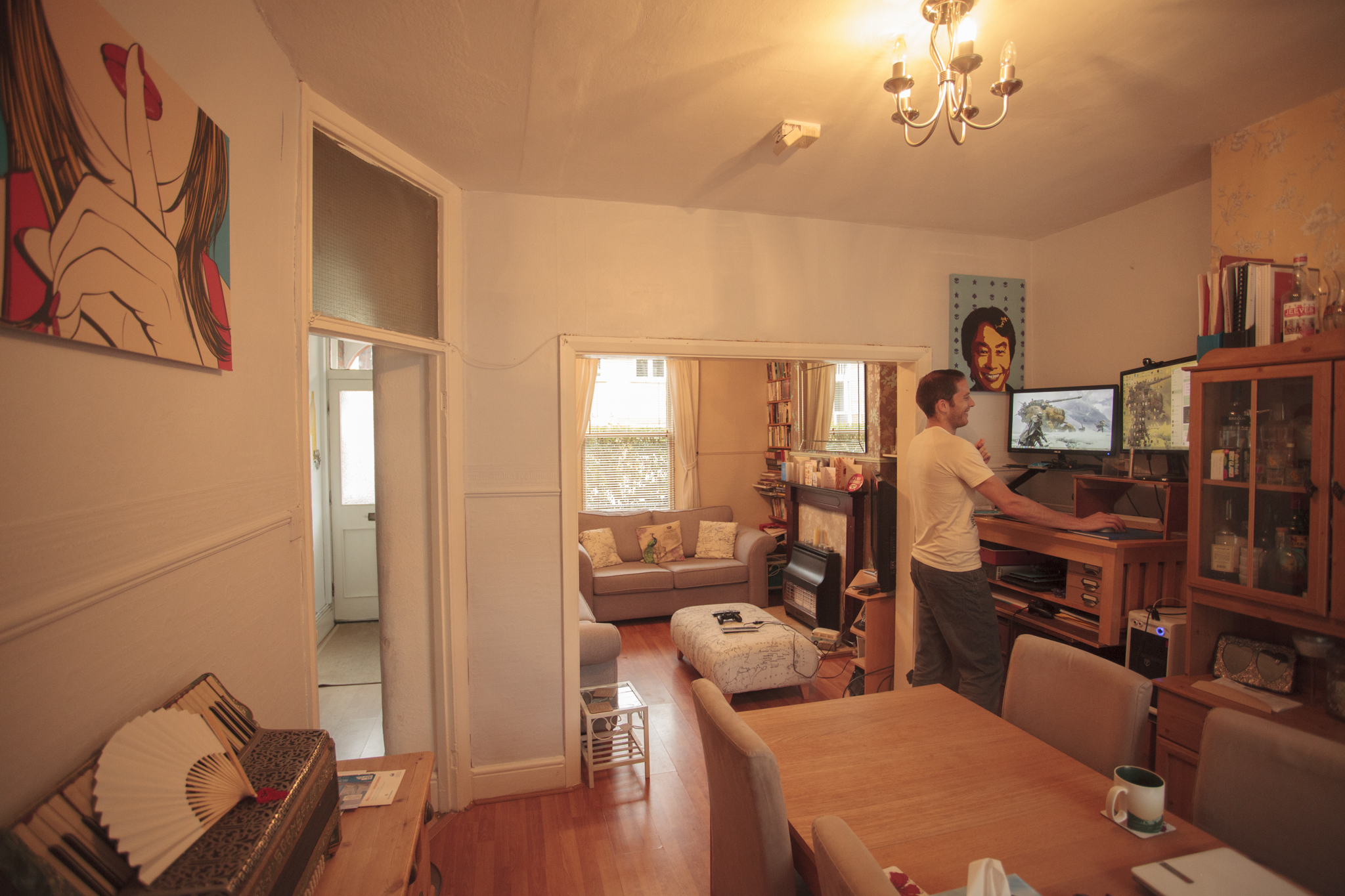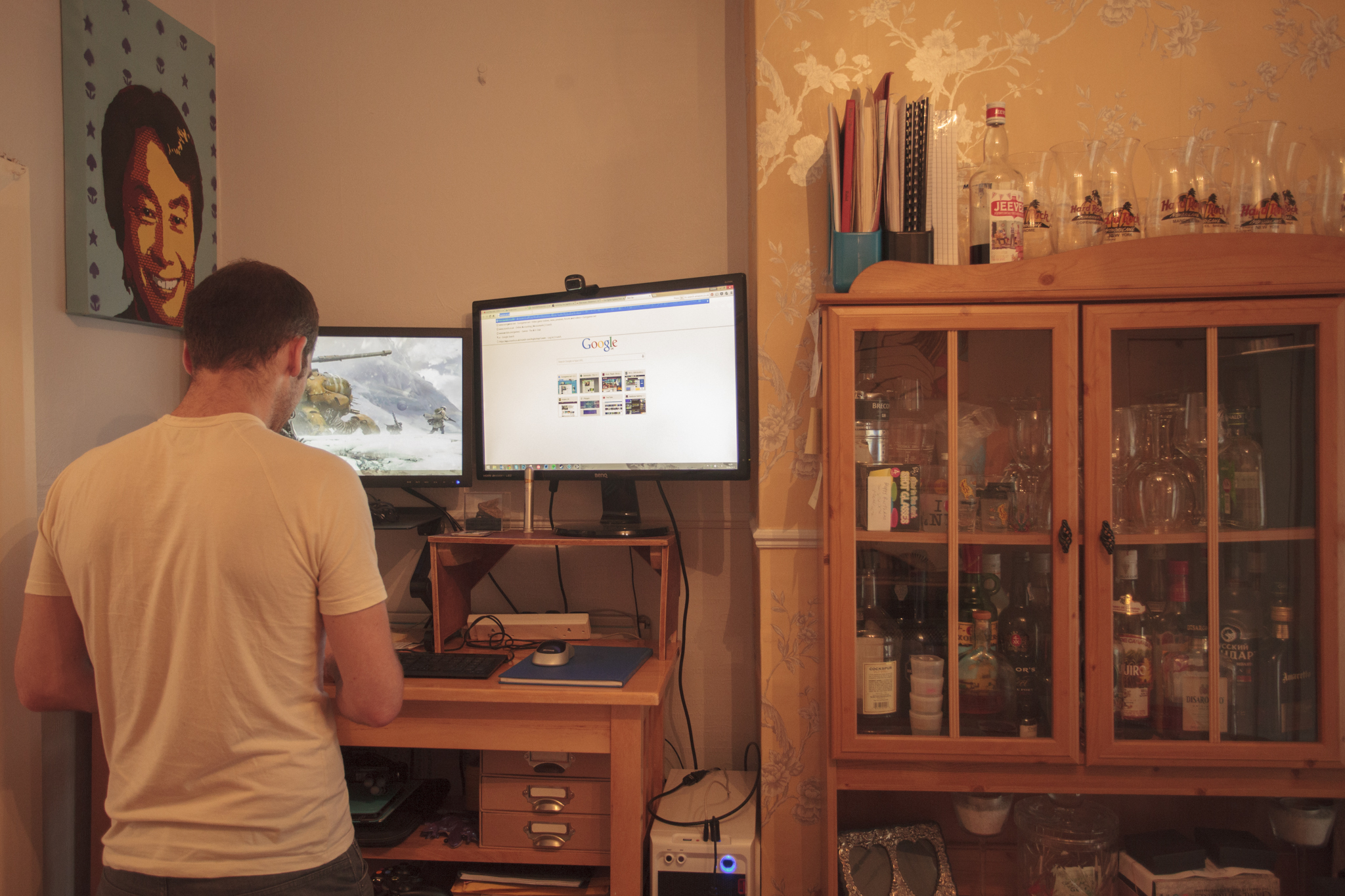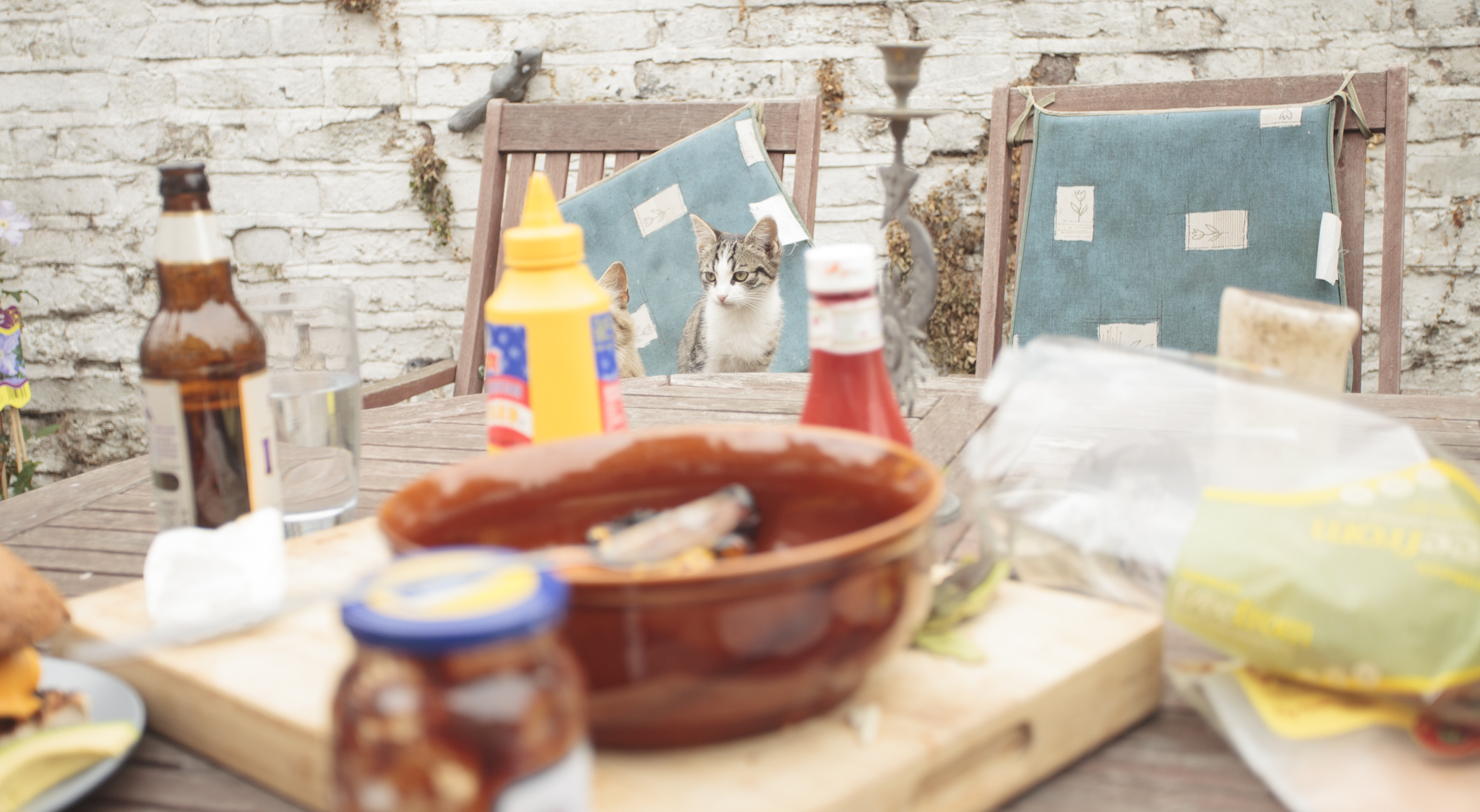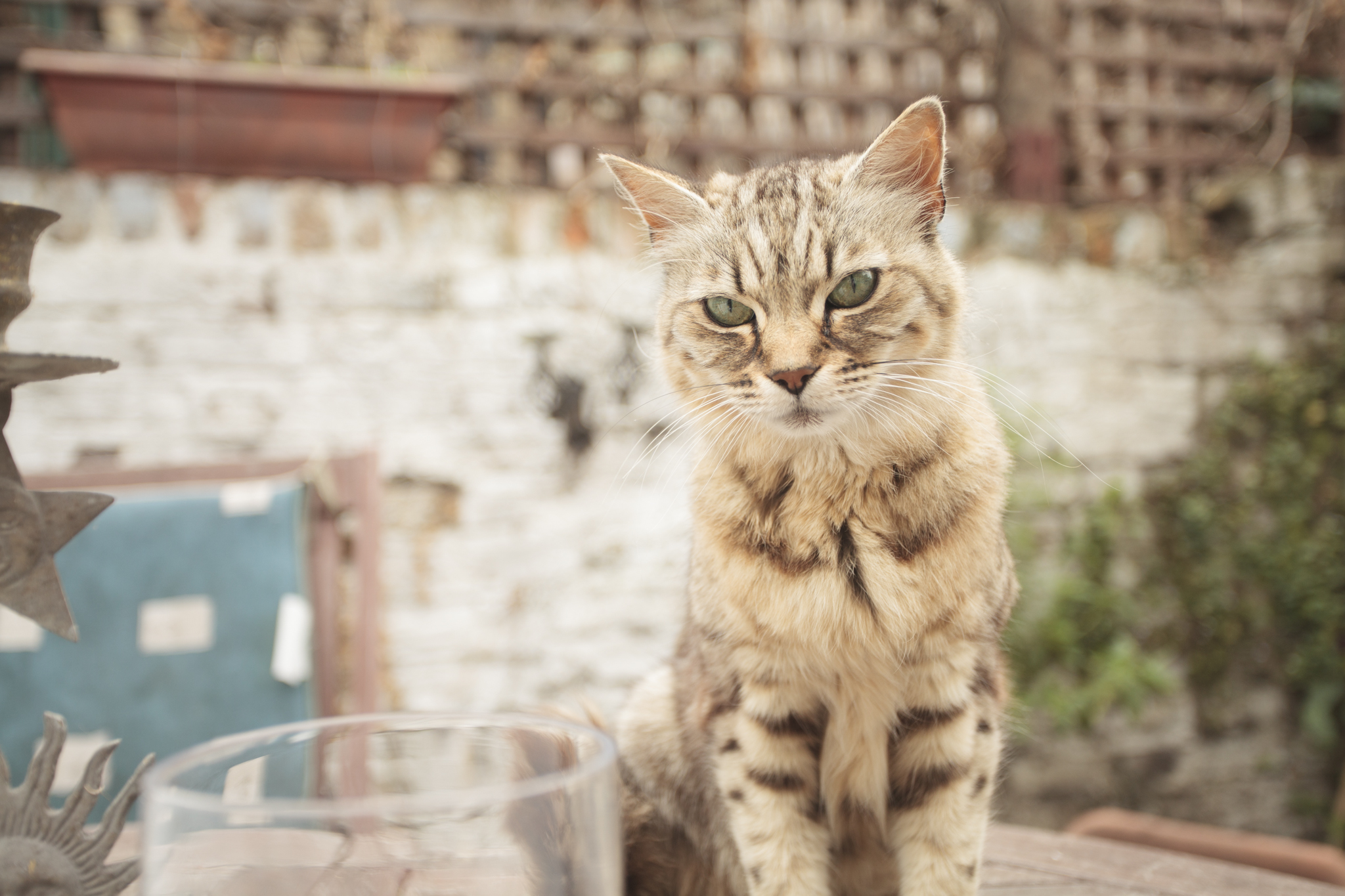MGIF S2 E4: Andrew Smith, Spilt Milk Studios
Hit play for the podcast interview below. MGIF is also available on iTunes or with whatever podcast software you use. Just search for "Making Games Is Fun".
"This is Socks, this is Mum, that's Chump and over there is Mo", says Andrew of Spilt Milk Studios. He's not introducing me to his team, he's pointing out the cats from next door that they've ended up semi-adopting. This is the way of the modern indie; an hour's bug fixing, a four second commute to the back garden to fend off a herd of hungry cats, a quick sandwich, then a four second return journey to the PC to fend off a herd of hungry Early Access customers.
After putting out some milk for the cats and an update for the Internet we retire to the dining room table. I'm sat in a beautifully furnished, tidy home. Behind Andrew is a large, glass doored cupboard full of different whiskies and spirits. His PC is set up in the corner overlooked by a large art print of Shigeru Miyamoto, a coding father figure presiding over Andrew's work with his familiar grin. Andrew lives here with his girlfriend and it's very much a home first and an office second, the PC tucked away in the corner on a standing desk, inconspicuous and inkeeping with the decor. At the time of visiting, Andrew and his team are on the cusp of releasing the final version of Tango Fiesta, a game that has been available on Steam Early Access for the past year.
Tango Fiesta is Spilt Milk's third game and their first time using Early Access. "We wanted to do Early Access to learn", Andrew tells me. "At the time...it was still seen as a way for a game to get out and get some really useful feedback, generate some kind of community around it, some buzz and then, basically, make a better game as a result. For various reasons it didn't quite work out exactly as expected, and that's fine because we've learnt from it and that was the whole point."
The initial spark of debate around Early Access has dampened since its introduction back in 2013. At the time, it was unexplored territory for all involved, making villains of some and champions of others. Discussion was often centred around customer interaction and community management. Communicating well with customers, listening to complaints and transparency have been key to the success of many Early Access games.
Andrew discovered that, broadly speaking, the community response was a more pleasant one than he had expected. "We were expecting a lot of people with a lot of demands - 'we want to see this in the game' - and actually what happened was people just played it, had fun with it and complained about what was broken rather than what wasn't in it".
Andrew feels he is a little more thick-skinned than others when it comes to handling 'Furious Internet Feedback' aimed at the game; inflammatory Steam reviews were often resolved with simple, friendly enquiries into the specific problem the aggrieved was having with the game.
"You ignore the anger, you know, and just engage with their point and almost every single time, their second response is much more reasoned; you get to the actual issue and they end up really appreciating you for having treated them like a person. They become a fan when initially you thought maybe they would be the opposite".
"If someone's angry enough about one little thing in your game to come and post about it, it means that they probably quite like the other bits. They're not going to be angry because it's objectively a bad thing, they're going to be angry because it's spoiling something and it can only be spoiled if it's good, or potentially good".
Despite the positive experiences from taking a game through Early Access, Andrew feels that Spilt Milk are finished with that model of development for the foreseeable future. "One of the key things we learned is we probably wouldn't do it again with a game like this...it's a bit glib but unless your game is about surviving or crafting, you're probably limiting the success you can have in early access".
Although slightly tongue-in-cheek, Andrew makes a good point: Early Access has moved on significantly since its inception, and the novelty of playing the game early has given way to a model driven by community expectations. People want to be treated to regular new additions as well as more heavily influence the direction of new content and features.
It's fair to say that making games has always been what Andrew has wanted to do. Starting with a degree in Computer Arts at the University of Abertay in Dundee, back when only three videogames related courses existed, Andrew went on to get a junior designer role at Visual Science. He then moved on to Realtime Worlds for a brief period but found he clashed with the corporate culture:
"The straw that broke the camel's back was when I got an email from the producer, who sat [a couple of metres away] telling me to stop laughing," he tells me. This prompted a move to Proper Games, a company founded by ex members of Visual Science. Once that grew too large, however, he decided to leave and create Spilt Milk Studios. He was back to the environment he loved; small teams where you are afforded a lot of creative and meaningful input on a game from the start.





We've looked after the cats but now it's time to forage for a little sustenance of our own as lunchtime approaches. We decide to take a stroll along the roads of West London to gather the ingredients for a barbecue from the supermarket. It's a bit of a change for me in this series to be plodding through a familiar semi-suburban environment as opposed to the usual East London coffee-scape. There isn't a giant omnibeard in sight. It reminds me of home, which is probably because I live twenty minutes away; a fairly typical suburb, green enough, unremarkable, but pleasant. This is where you find people who are in or approaching their thirties. It's where you go when you've stopped caring what people think about your appearance. And that's okay; we like it out here, with our tiger bread and our walks along The Grand Union Canal.
Prior to moving here, Andrew stayed with his parents while he got Spilt Milk up and running. Andrew's family have supported him from the start, both materially and emotionally, and they have made a continued effort to properly understand what he does. The turning point came when Andrew's mum saw a family friend's six year old son playing one of his games. She saw the enjoyment, the smile across his face and the level to which he was engaged. It helped her understand why he's always wanted to makes games for a living. These days, they are even more receptive and willing to learn, and Andrew is planning to send them some books on videogame culture to read, in order to get a grasp on the world he lives in.
"The next step," he says, "will be getting them to play something."
The cats are keen to join in with the barbecue so we put some dry chunks of crunchy cat food out in a futile attempt to distract them from the sizzling platter filling the garden with delicious smells. It doesn't work, and lunch is fifty percent eating and fifty percent playing whack-a-mole with hungry feline bonces as they appear over the edge of the table.
Andrew is having mixed feelings about the impending release of Tango Fiesta. "I want it to do well and I keep changing what that means to me...if it makes its money back and sees a profit in six months to a year, by the industry standard that's good, so that's...good? I should be happy with that, but what if I'm not?"
Andrew seems finally settled where he is now, in a position where he is in full control, where he can engage with his audience how he sees fit, where he can be open and honest, free from corporate nonsense yet still be an "actual business", a concept that still feels slightly alien to him. It's encouraging to see the business of games evolve to a point where it's possible for people to branch out on their own like this, to pull away from the traditional model and for it to be as valid and as viable a way of earning a living as it is to rise up the ranks of a major developer. Do you want money and stability, or do you want creative control? Does your happiness come from being an important cog in a giant machine or does it come from being close to your audience? It's easy to romanticise the go-it-alone approach, and no single approach is right for everybody, but to have the option is exciting, and speaks to the continuing diversity, growth and freedom of game development as a medium.
You can find Andrew on Twitter at @spiltmilkstudio . Tango Fiesta is out right now on Steam, and you can find it here

